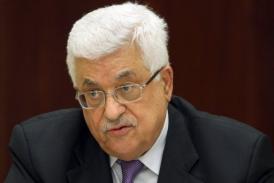CAIRO: It was 3 am when people started showing up at Al-Daher Bakery, which begins work at 5 am.
“I am used to coming as early as I can to get a place in the line before it gets crowded, said Samir Younis, a public employee and father of four. “I can’t avoid buying subsidized bread, because my salary doesn’t cover our needs, he added.
Complaints of the daily suffering to buy subsidized bread have become the talk of town.
Quarrels become a daily practice for people who go to bakeries. “People become more tense and angry. They fight us as if we are the reason behind this crisis, a worker at Al-Daher Bakery said.
These quarrels have been increasing in intensity to the point where people were injured or even killed. A woman was stabbed after a brawl in a bread queue. A man has been shot while queuing for bread in a different incident.
According to Hamdi Hassan, spokesman for the Muslim Brotherhood parliamentary bloc, more than 15 people have been killed during their attempts to buy bread. This has led for calls to issue a fatwa to consider those people martyrs.
In Dokki, police found Molotov cocktails. While it was initially believed that the material belonged to a group of terrorists, police investigations later revealed that these explosive devices were prepared to aid citizens in buying subsidized bread.
Observers have often highlighted government concerns over the possibility of ‘bread riots’ if the price of this vital commodity increased.
Al-Daher Bakery’s employees complained that favoritism plays a role in giving certain people priority over those standing in line. They say members of the middle class, who are also affected by the economic crisis but can’t handle the humiliation associated with the bread queues, sometimes pay extra money to the bakery owners to get the bread without standing in line.
“I’ve been standing in the queue for more than two hours, while bakery owners sell bread to their friends and acquaintances and neglect us, an elderly woman named Madiha said with tearful eyes.
Osama Hanna, a teacher from Al Azia village in Assuit, says the problem isn’t just about people not respecting the order in the queues. “Getting bread depends on your muscle power and your relation with the bread seller, he said.
“What’s happening in Egypt is starvation, he continued.
Enlisting the ArmyBy 7 am, the queue in front of the bakery had grown as more people flocked to the site. Shortly after, an army vehicle stopped in front of the bakery. Building tension gradually turned into smiling faces, as the soldiers started transferring bread inside the bakery and the long line got shorter.
The government has ordered the Armed Forces’ public service body to join in the production and distribution of subsidized bread. This came after 10 people were reported to have died in ‘bread queues’ related accidents.
The Ministry of Social Solidarity agreed with the Armed Forces to distribute 100,000 bread loaves to six major bakeries in Cairo every day.
Black MarketBread prices have increased following a similar trend in global wheat prices. This global price hike also coincided with the US – a major wheat exporter – decision to produce biofuels using wheat.
Consequently, the gap between the price of subsidized bread and that sold by the private sector had widened. The loaf which the government sells for 5 piasters is sold for 35 and 50 piasters in other private outlets.
This has led bakery owners to quit the business of selling subsidized bread. Bakery owner Amer Lotfy decided to switch from making and selling his original product, subsidized baladi bread, to the siyahi (touristy) kind, which is sold for 35 piasters each.
He said he buys a LE 16 sack of subsidized flour from another bakery for LE 200.
“The big difference between the price of the flour in the black market compared to the price of subsidized flour tempts bakery owners to smuggle the subsidized flour and sell it . mainly to us, Lotfy explained.
Egypt is the world’s second-largest wheat importer, as bread is central to the Egyptian diet. An estimate of 20 percent of the population lives under the poverty line. Other estimates put that number at 40 percent. In the pipeline
The government plans to buy more grain (about two-thirds more than it currently does) from local farmers this year by offering higher prices, seeking to cut state spending on overseas purchases.
The government expects to buy three million metric tons of wheat from local farmers in the marketing year that runs from April through June, compared with 1.8 million tons last year.
Egypt’s wheat production was 7.4 million tons last year, while it imported 7 million tons of wheat, according to government statistics.
To counter the increase in the price of wheat in the international market the government has increased spending on bread subsidies to LE 15 billion.
Other measures taken to contain the problem, include increasing flour rations to Cairo and another seven governorates, as well as separating the production and distribution processes to control flour smuggling.
Public joint stock company El Masryeen has already started distributing subsidized commodities – namely bread and propane tanks – through designated outlets.
It is scheduled to start delivering bread straight to homes for a flat fee of LE 3 a month sometime soon.
“The bread crisis is a result of the government s mismanagement of its resources, corruption and lack of proper distribution, said Magdy Sobhi, an economist at El Ahram Center for Political and Strategic Studies.
He said that the government had failed to properly distribute its subsidized bread, which reflects its failure in general.

